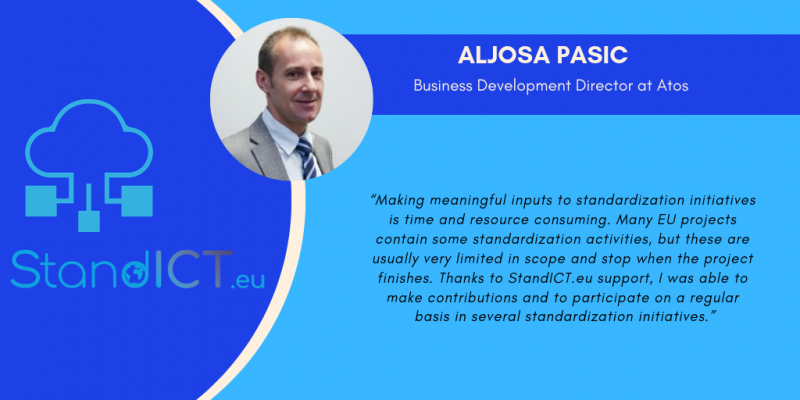
Bringing European ICT Standards expertise in the International landscape
Aljosa Pasic is one of the funded expert within the StandICT.eu framework. In the application for one time shot support, he committed to join the past 27-31 August 2018 ISO/IEC JTC 1/SC 38 meeting in Montreal (Canada), mentioning possible contribution to ISO/IEC 19086-2 and ISO/IEC 22123.
In total there are currently 9 draft standards under development in SC38. Before the meeting WG3 experts provided their inputs and comments on the following standards:
- TR 23187 Cloud computing – Interacting with cloud service partners (CSNs)
- TR 23188 Cloud computing – Edge computing landscape
- TS 23167 Cloud computing – Common Technologies and Techniques
- TR 23613 Cloud computing – Cloud service metering and billing elements
Given the agenda and the possible space for contributions related to level of assurance for identity credentials and attributes, the best match for these contributions was found in TS 23167 Cloud computing – Common Technologies and Techniques, as well as the new TR on Cloud SLA metric best practices. Aljosa participated in other more specific discussions, especially to interact with cloud service partners (CSNs), where he participated in discussion regarding CSN versus the role of cloud broker, and in Edge computing landscape, where a lot of discussion was on centralized versus decentralized architectures.
Based on the outcomes and recommendations of SC38 WG3 meeting, the relevant projects and initiatives, such as CEN workshop agreement, will be contacted and the feedback from them will be collected.
“Making meaningful inputs to standardization initiatives is time and resource consuming. Many EU projects contain some standardization activities, but these are usually very limited in scope and stop when the project finishes. Thanks to StandICT.eu support, I was able to make contributions and to participate on a regular basis in several standardization initiatives.” These words highlights the tangible support that the StandICT.eu initiative has been capable to deliver with a forward-looking aim to bring European expertise mirrored within International Standards landscape.
